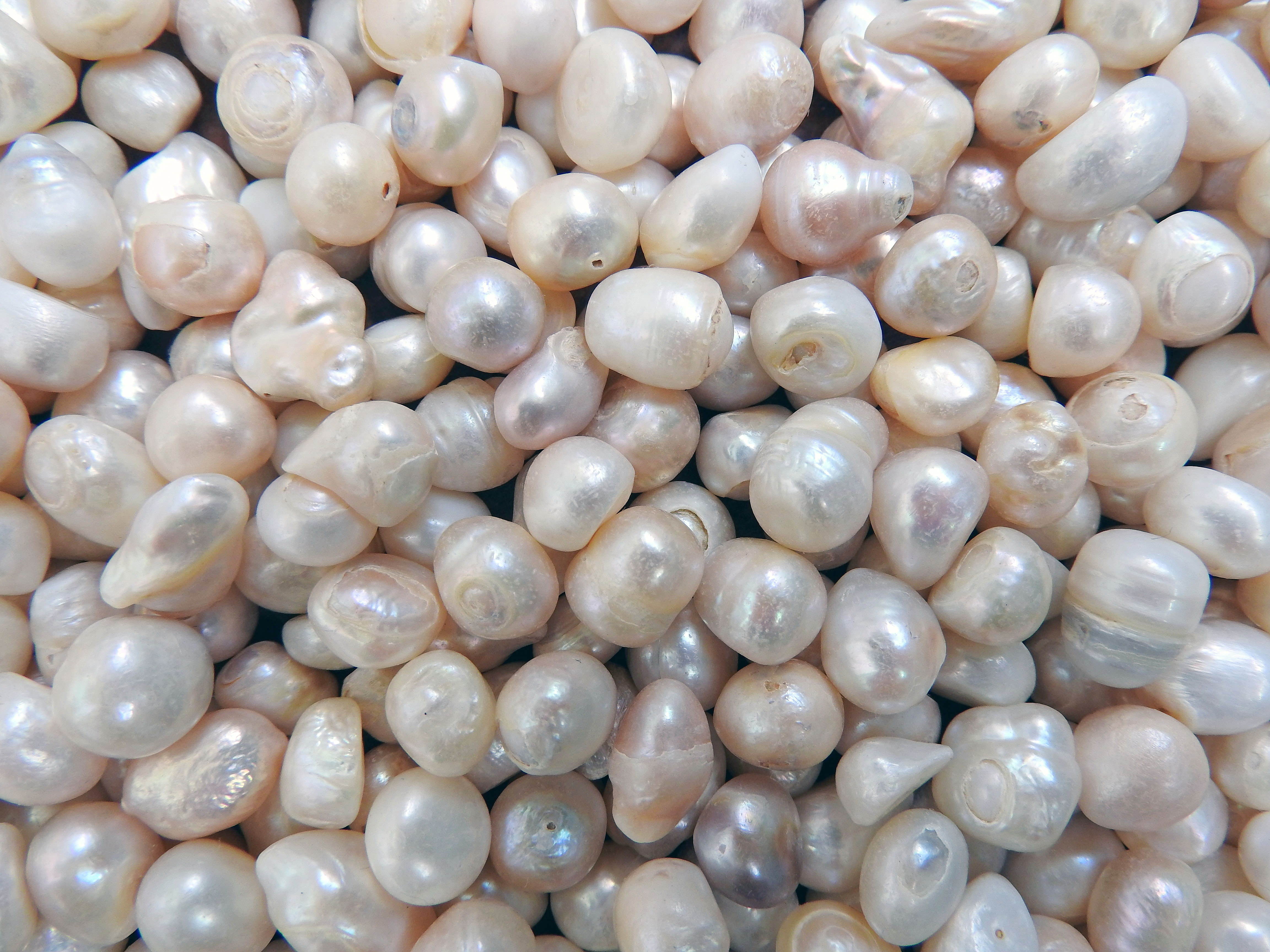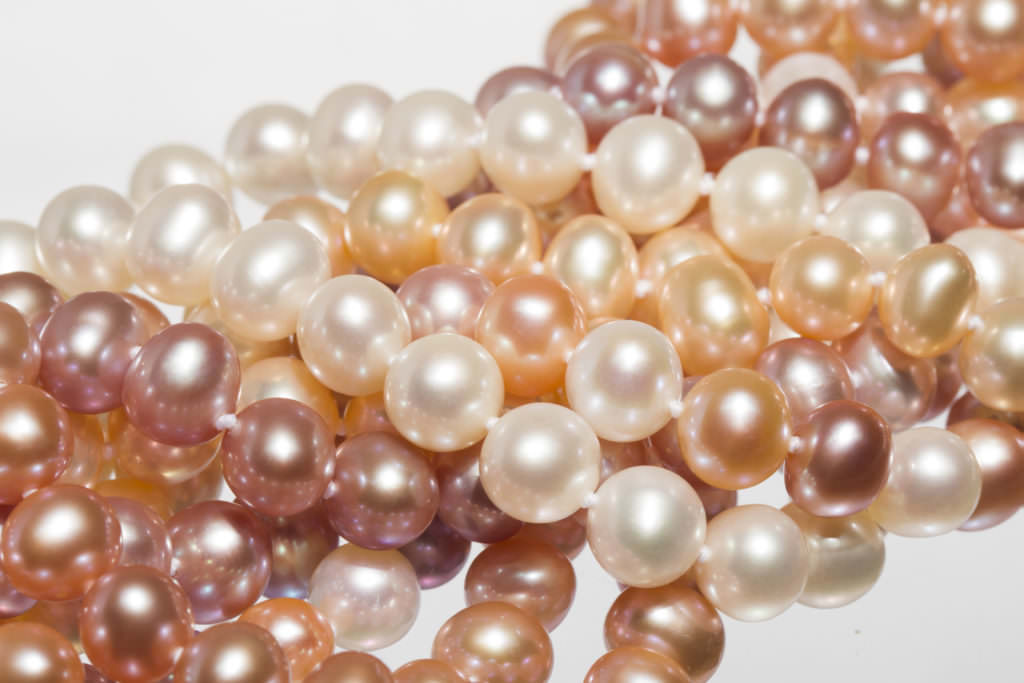Color freshwater pearls, sourced primarily from non-saltwater bodies such as lakes and most notably from China, offer an exquisite array of shades that have enchanted jewelry enthusiasts for centuries. These pearls are distinctive in their own right, showcasing an enchanting interplay of color, orient, and luster. In this comprehensive guide, we’ll dive deep into the world of color freshwater pearls, unraveling their captivating features, and revealing the secrets behind their remarkable beauty.
Color freshwater pearls, also known as non-bead nucleated pearls, emerge from mussels dwelling in freshwater environments. These pearls are celebrated for their remarkable range of colors, captivating orient, and the elegant overtones they can display.
China stands as one of the prominent sources of these unique pearls. Here, a single mussel can generously produce multiple pearls, contributing to their availability and affordability in the market.
One of the most intriguing aspects of color freshwater pearls is the sheer diversity of hues they offer. Although four main color categories are commonly recognized, they represent just a fraction of the full spectrum of possibilities.

The pearl’s color journey is influenced by various factors, each contributing to its unique character. These factors include the genetics of the mollusk, the mussel’s diet, and the trace metals present in the mussel’s environment.
Color freshwater pearls are renowned not only for their wide range of hues but also for their captivating orient. This enchanting optical effect creates the illusion of shimmering rainbows just beneath the surface of the pearl. The ethereal effect of orient is akin to the play of colors observed in a delicate soap bubble.

Freshwater pearls harbor subtle overtones, a secondary layer of color that complements their primary hues. While not as pronounced as the overtones seen in bead-nucleated pearls, high-quality freshwater pearls may display gentle overtones in hues like blue, green, or rose.
It’s not uncommon for freshwater pearls to undergo treatments to achieve specific colors or create uniform strands. The treatment process can lead to vibrant and captivating results, but it is essential to understand the implications of these enhancements on the pearl’s value.
In summary, color freshwater pearls are a captivating category, known for their wide range of colors, enchanting orient, subtle overtones, and the potential for color treatments. Whether you prefer classic creamy shades or desire to explore the mesmerizing world of iridescence, color freshwater pearls offer a canvas of endless possibilities for crafting exquisite and personalized jewelry pieces. These pearls embody the charm of nature, preserving unique moments in their diverse palette of colors.
Natural color variations of freshwater pearls can range from white and cream to pastel shades like pink, lavender, and peach. These colors are influenced by factors like the mollusk’s genetics, its diet, and the trace metals in its environment.
When selecting color freshwater pearls for your jewelry, consider your design and style preferences. Lighter pearls can complement a range of outfits, while deeper shades like lavender or rose may add a touch of elegance. It’s essential to choose colors that resonate with your personal taste and the intended occasion.
Pearl orient refers to the optical effect where colors seem to shimmer beneath the pearl’s surface, similar to a soap bubble. Freshwater pearls often exhibit rich orient due to their composition of pure nacre, enhancing their visual appeal.
Color-treated freshwater pearls are common and can produce evenly colored strands. However, they are generally considered less valuable than natural pearls because treatments may affect their overall value. Natural color variations are often highly prized for their uniqueness and authenticity.
Signup now and receive an email once I publish new content.